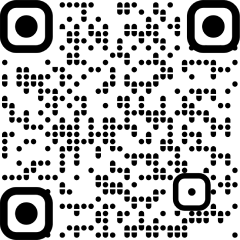While most of us have an idea what <a id=” captionrendered=”1″ data-src=”https://etimg.etb2bimg.com/photo/124325076.cms” height=”442″ href=”http://hr.economictimes.indiatimes.com/tag/artificial+intelligence” keywordseo=”Artificial-Intelligence” loading=”eager” source=”Orion” src=”https://hr.economictimes.indiatimes.com/images/default.jpg” type=”General” weightage=”20″ width=”590″>Artificial Intelligence (AI) is, it can be casually defined as machines designed to perform tasks that require human intelligences; such as learning, creativity, reasoning, decision-making and problem solving.
Generative AI (Gen AI), a subset of AI is capable of creating new content, including text, images and audio/videos with only a little need of human intelligence. While Agentic AI, another subset of AI is capable of completing tasks without almost any human intervention. It can autonomously make decisions, take actions and learn from interactions.
While the world’s first Large Language Model (LLM) and Gen AI chatbot, Eliza came into being in 1960, it lacked true comprehension and learning. The real beginning or breakthrough in AI technology came in 2017 with the landmark research paper in machine learning called “Attention Is All You Need”, authored by scientists working at Google. The paper introduced a new deep learning architecture known as the Transformer, based on the attention mechanism proposed in 2014 by Dzmitry Bahdanau, a Belarusian student and researcher studying in Germany at the time. The Transformer deep learning architecture, along with massive availability of data for AI training due to the widespread digitisation and explosion of digital communication tools, social networks and Internet since the beginning of 21st century. And expeditious advancements in computing power, driven by powerful GPU’s optimised for machine learning have all collectively led to the evolution and creation of such autonomous, adaptable, self-learned AI systems and tools that are capable to think, learn, reason and do things on our behalf.
Driven by its remarkable capabilities, artificial intelligence has been rapidly and wholeheartedly adopted. Backed by investments totalling hundreds of billions, the technology is continuously improving. AI’s applications are now ubiquitous, powering everything from virtual assistants like Siri and Alexa to generating emails, documents, social media content, computer code, presentations, images and even cinematic elements. This reliance is quantifiable, around 75% of new web pages contain AI-generated content and about 7-8% of non-spam and unautomated emails are written with AI assistance. I anticipate that within a couple of years, AI will assist in composing more than one-fifth of all non-spam and unautomated email correspondence, a figure set to rise thereafter as well but may stagnate at some point.
But, is our reliance on AI diminishing our brain power? The question strikes at the heart of a defining dilemma of our time. As we eagerly offload tasks like writing emails, homework, structuring presentations, generating content, coding, arithmetic and recall to artificial intelligence, we must ask; what is the long-term effect on the human brain?
Short answer is, we are poised to see a negative impact.
MIT Media Lab, a research laboratory at the Massachusetts Institute of Technology did an interesting study on the use of Generative-AI tools like ChatGPT on our brains. Laboratory’s researchers divided participants aged 18 to 39 into three groups and recorded their brain activity with an electroencephalogram (ECG) while they wrote SAT essays. Each group used a different method; one used OpenAI’s ChatGPT, another used Google Search and the third used no tools. The lab found out that ChatGPT users had the lowest brain engagement and “consistently underperformed at neural, linguistic and behavioural levels”. While the study had a limited sample size and awaiting peer-review, the results weren’t surprising to me.
Based on already established neurological principle, neuroplasticity; our brains are adaptable. Skills we practise strengthen their neural pathways; skills we neglect see those pathways weaken and atrophy. AI tools allow us to skip critical cognitive work of synthesis, analysis and logical sequencing. This cognitive-offloading boosts productivity and efficiency and provides a lot of convenience, “outsourcing” the essential brain activities to Generative AI tools like ChatGPT and others, will lead to narrowing of critical thinking and focus. In simple words, if we keep depriving our brains of the essential cognitive activity by outsourcing it to AI, we most likely will experience a secular decline in aggregate human intelligence.
AI will also most plausibly lead to erosion of recall and memory in humans. Our brains use recall not only for facts, but to make connections between them. Since AI, specifically LLM makes almost “everything” instantly accessible, be it fact or formula; the real-world premium on human recall may keep on diminishing for some time to come. Our reliance on AI for memory and recall will only deepen as the technology advances, and with it, its adoption. This shift mirrors how smartphones eroded our capacity to remember phone numbers and how centuries of wearing shoes have gradually weakened our feet.
No one knows how it will play out in the next 100 years, but let’s hope our great-grandchildren are not cognitively less advanced than us.
Views are personal.
DISCLAIMER: The views expressed are solely of the author and does not necessarily subscribe to it. will not be responsible for any damage caused to any person or organisation directly or indirectly.
Join the community of 2M+ industry professionals.
Subscribe to Newsletter to get latest insights & analysis in your inbox.
All about industry right on your smartphone!
- Download the App and get the Realtime updates and Save your favourite articles.
